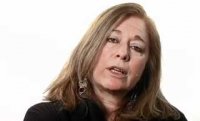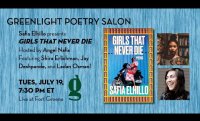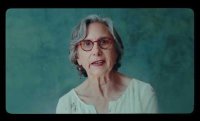It’s hot out there, folks! Stay cool—or cooler, anyway—indoors while applying to some contests with deadlines of August 8, 9, 15, and 20. Among the awards are a $3,000 prize for a poetry collection; a $1,500 prize for a poem and a short story; a $1,000 prize for a book of innovative poetry, fiction, nonfiction, or hybrid-genre work; and $1,000 prizes for individual poems, works of flash fiction or nonfiction, and short stories. All contests offer a cash prize of $1,000 or more. Good luck!
Futurepoem Other Futures Award: A prize of $1,000, publication by Futurepoem, and 25 author copies is given annually for a book of innovative poetry, fiction, nonfiction, or hybrid-genre work “that challenges conventions of genre and language, content, and form.” The editors will judge. Entry fee: $28.
Gival Press Short Story Award: A prize of $1,000 and publication on the Gival Press website is given annually for a short story. Entry fee: $25.
Grayson Books Poetry Prize: A prize of $1,000 and publication by Grayson Books is given annually for a poetry collection. John Sibley Williams will judge. Entry fee: $26.
Indiana Review’s 1/2 K Prize: A prize of $1,000 and publication in Indiana Review is given annually for a poem or a work of flash fiction or creative nonfiction. Geffrey Davis will judge. All finalists will be considered for publication. Entry fee: $20 (which includes a subscription to Indiana Review); no fee for Black and/or Indigenous writers.
Kallisto Gaia Press Poetry and Short Fiction Prizes: Two prizes of $1,500 each and publication in Ocotillo Review are given annually for a poem and a short story. Zoë Fay-Stindt will judge the Julia Darling Memorial Poetry Prize and Jen Knox will judge the Chester B. Himes Memorial Short Fiction Prize. Entry fee: $20.
Omnidawn Publishing Open Book Prize: A prize of $3,000, publication by Omnidawn Publishing, and 100 author copies is given annually for a poetry collection. Shane McCrae will judge. Entry fee: $27; for an additional $3, entrants will receive a book of their choice from the Omnidawn catalogue.
TulipTree Publishing Stories That Need To Be Told Contest: A prize of $1,000 is given annually for a poem, a short story, or an essay that “tells a story that needs to be told.” The winner will also receive a two-year subscription to the literary database Duotrope and publication in the annual Stories That Need to Be Told contest anthology. All entries are considered for publication. Entry fee: $20.











